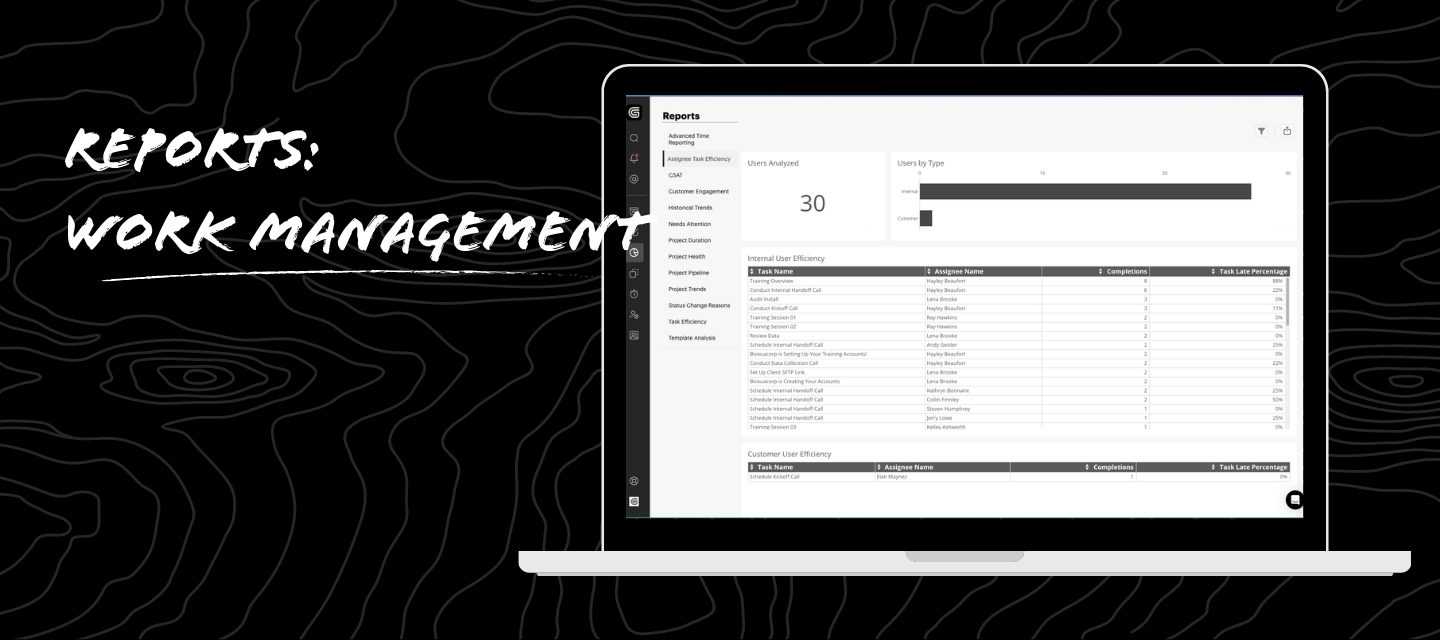Enhance your work by using GUIDEcx reports to identify what needs your attention.
Needs Attention will tell you if there are any unassigned tasks that need your attention.
Assignee Task Efficiency can serve as a personal scorecard that you check weekly to be the best you can be!



